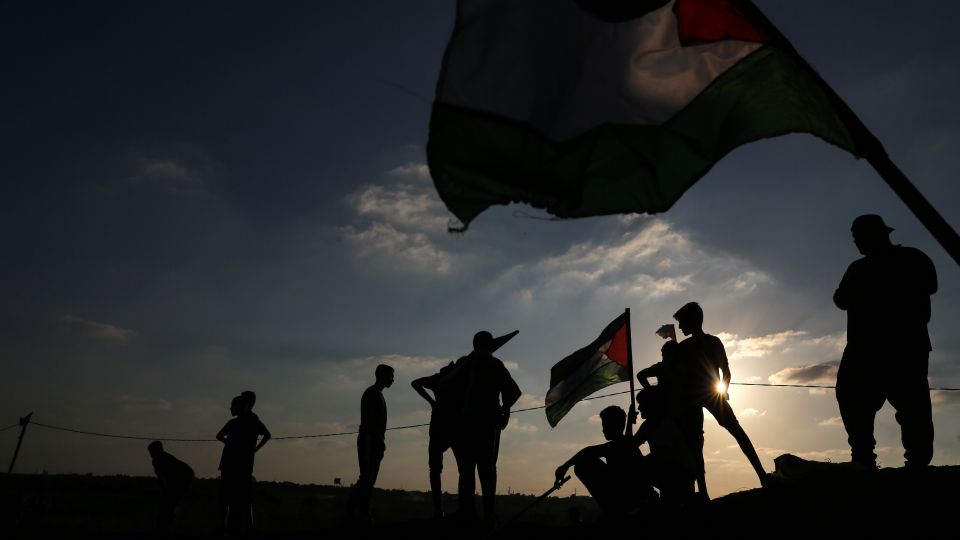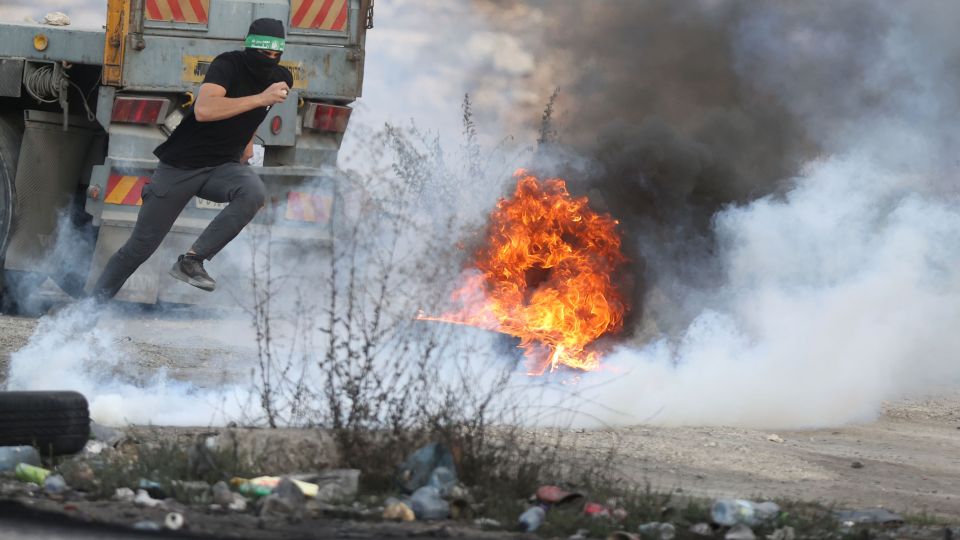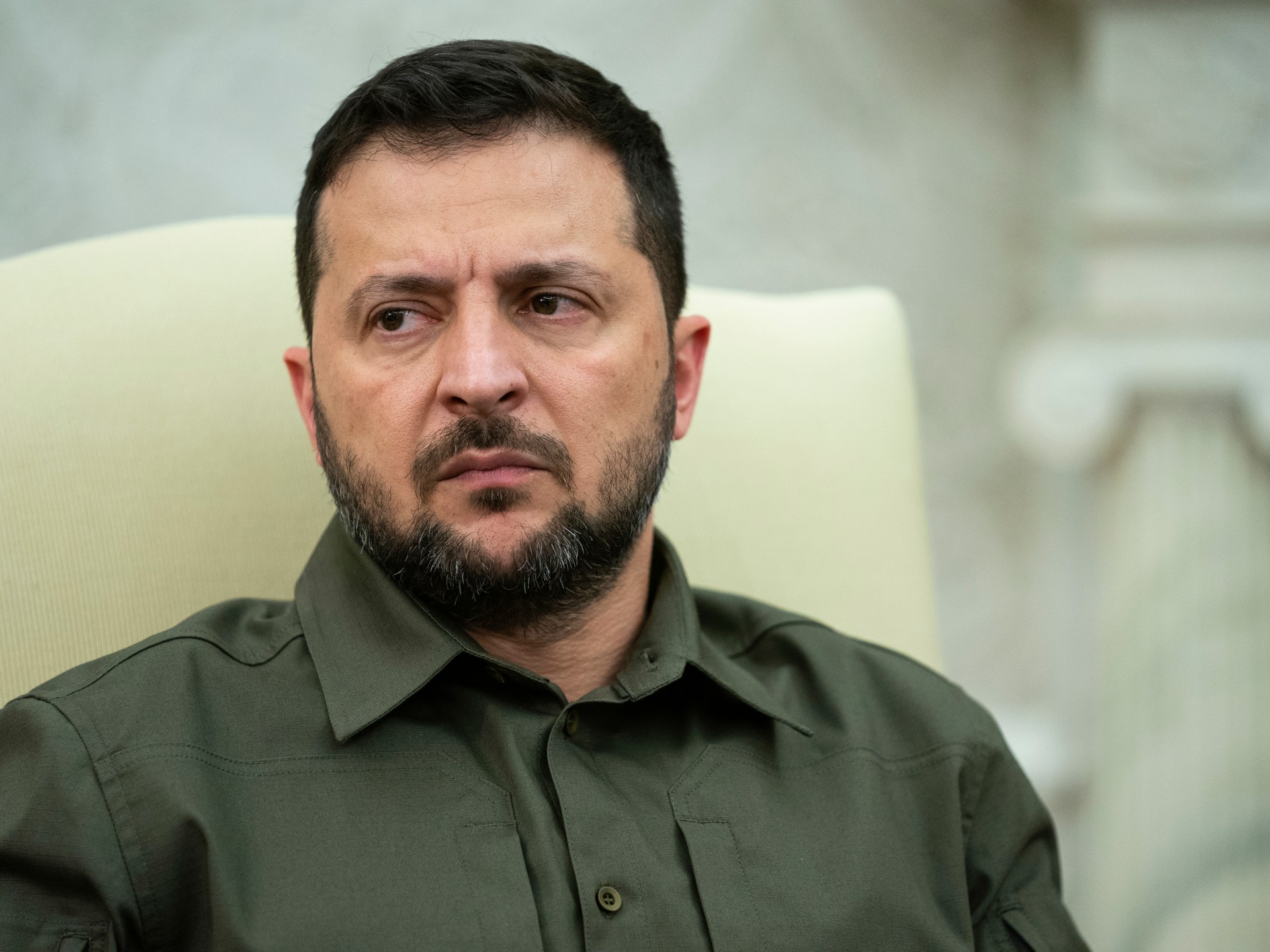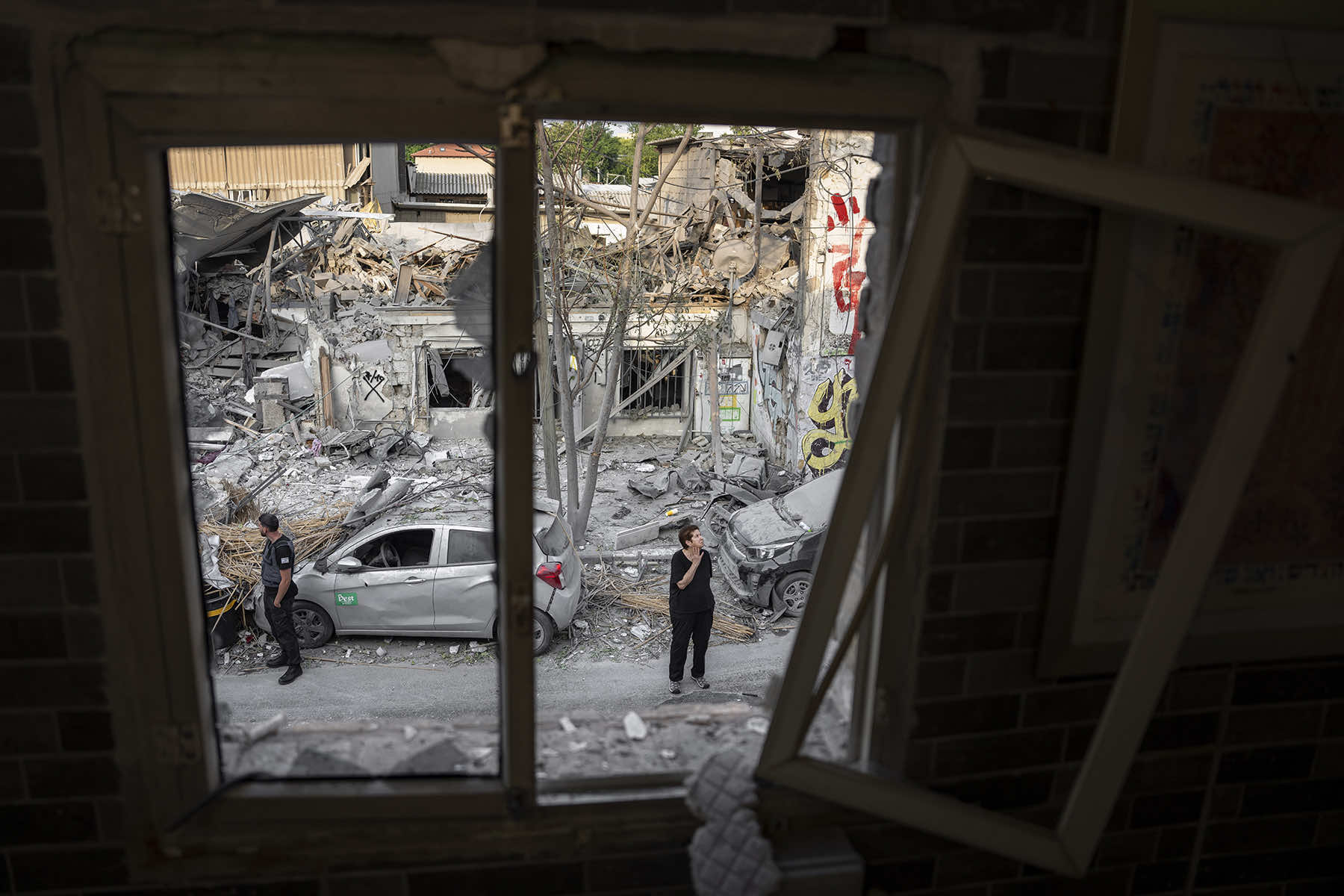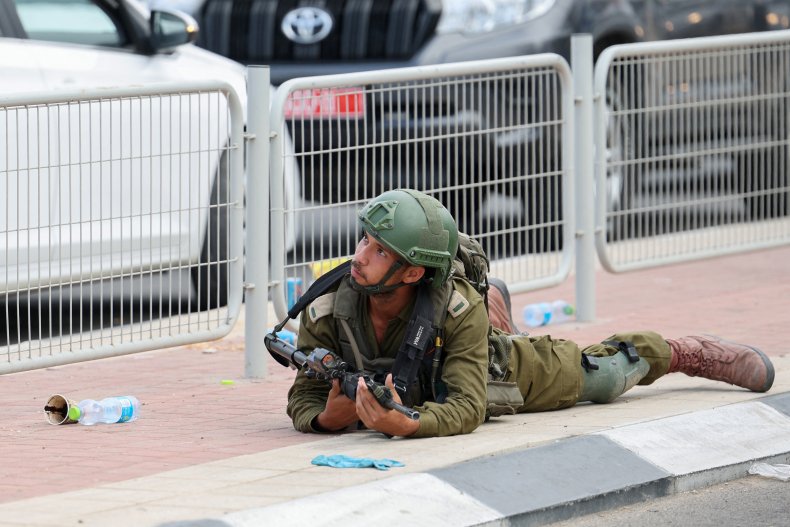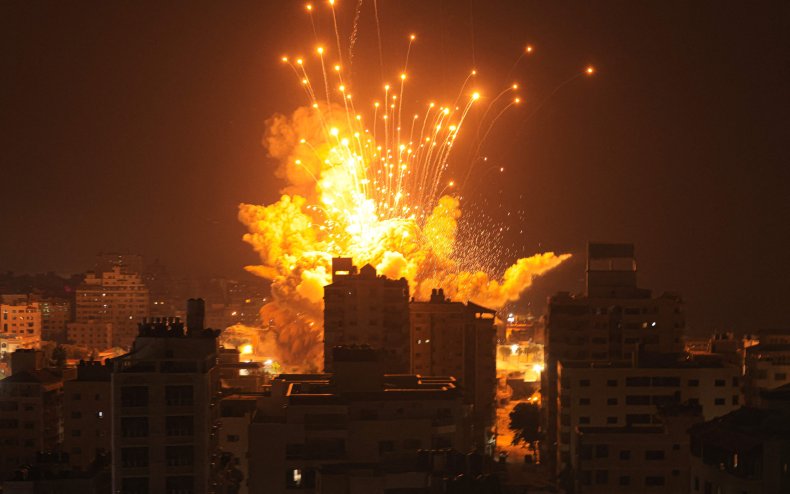Last March, a Palestinian delegation arrived in Moscow for talks with Russian officials. The delegation was from Hamas, the militant Palestinian group that’s been labeled a terrorist organization by the United States and the European Union. The meeting, according to the Russian Foreign Ministry, touched on Russia’s “unchanged position in support of a just solution to the Palestinian problem.”
“When considering the issue of restoring Palestinian national unity, the Russian side expressed its readiness to continue to assist in overcoming differences and bringing together the positions of leading Palestinian political forces and movements on the platform of the Palestine Liberation Organization,” the ministry’s readout said.
Russia’s ties to Hamas are well-documented, as are its ties to Hamas’s main backer, Iran. For some observers and commentators of the ongoing bloodshed in Israel, that in itself is cause for blaming Moscow, accusing it of having a direct hand in the spiraling violence.
That’s not correct, said Hanna Notte, a Berlin-based analyst with the James Martin Center for Nonproliferation Studies and an expert on Russian policy in the Middle East.
Russia’s embrace of Iran has benefited Moscow in its war on Ukraine, with Tehran supplying kamikaze drones and other equipment to help Russian forces seeking to hold back a slow-moving Ukrainian counteroffensive. But it’s a big stretch to extrapolate from there and say Russia would endorse Hamas’s bloody assault and risk outright disruption in relations with Israel, whose ties to Moscow are lukewarm but certainly not hostile, she said.
In an October 9 phone interview with RFE/RL, Notte explained more of the nuances involving Russia’s role in the Middle East. The interview has been slightly edited for clarity and grammar.
RFE/RL: You are skeptical of speculation that there could somehow be a Russian role in this attack? Is there any indication that they might have some sort of direct, or indirect connection to this?
Hanna Notte: So looking at this, there’ve been selective reports over the last years, and this predates the war in Ukraine, that Russian-made systems have shown up in Hamas’s hands. Anti-tank missiles, shoulder-launched, anti-aircraft missiles; this goes back years and Israel, at the time, assumed that these weapons fell into Hamas hands via Iran. So I’ve never seen an indication of direct, large weapons shipments from Russia to Hamas, let alone Hamas being trained by Russian military. And again, in the context of this latest attack, I have yet to see the evidence that this is Russian weapons or that the Russians have trained Hamas. So I don’t see a direct role here.
I don’t think that Russia wants to go all-in with Iran, that it wants to disrupt its relations with Israel and with Gulf states.
Of course, Russia-Hamas relations go way back. I mean, they were invited to Moscow, I guess, in 2006, after they won the election in the Palestinian territories, and there’ve been Hamas delegations that have been going ever since. You know, the Russians have been quite active in recent years, trying to mediate between different Palestinian factions. And of course, they’ve never recognized Hamas as a terrorist organization. They’ve always argued that, you know, the different factions need to forge unity.
And it’s sort of a niche that the Russians have carved out for themselves on the peace process, because they’ve lamented quite frequently in the last few years that the Americans monopolize the peace process, especially during the Trump administration and the ‘Deal of the Century’ [a controversial Trump-era peace proposal]. So they tried to carve out this niche, priding themselves on talking to all the Palestinian factions. Factions came to Moscow frequently.…
So Russians have been active on the Palestinian side, and that goes back historically. The Soviet Union took quite a pro-Palestinian stance. The Russian [Foreign Ministry] has historically taken quite a pro-Palestinian stance or a very, as it says, a very even-handed approach on the conflict. So these relations go way back. That is true. But I don’t think that we can infer from that, that there is sort of direct military support.
Russian Foreign Minister Sergei Lavrov (right) holds talks with then Hamas leader Khaled Mashal in Moscow in March 2006.
There’s another question about whether Russia’s role matters indirectly here. I would argue that because of the war in Ukraine, because of the severe deterioration in Russia-West relations, and therefore, the changing geopolitics of the Russia-Iran relationship, Russia is, broadly speaking, enabling Iran more in the region. So Iran feels more emboldened. Iran gives drones and other support to Russia. It is probably getting some sort of support from Russia in return.
The Russians have become less enthusiastic about seeing the JCPOA [the 2015 Iran nuclear deal] being restored. They’ve become more forgiving of Iran. And so this general sense of ‘emboldenment’ might be playing into what we’re seeing right now. So there is a Russia, there is a Ukraine war connection here, but I see it as being more indirect as opposed to direct.
RFE/RL: Okay, well, you’ve jumped into three questions that I planned to ask there, so that’s great. So what is the benefit that Russia might somehow gain from all this?
Notte: I’m a bit of two minds here as well. I think on the one hand, it is certainly true that fostering instability, tensions, violence in the Middle East is broadly speaking beneficial to Russia right now. If they can foster crises and instability elsewhere, and deflect attention from Western states, from the United States primarily, away from Ukraine and from NATO’s eastern flank, that is beneficial in the broader geopolitical game right now. If a byproduct of what we’re seeing right now is to throw a wrench into Israeli-Saudi normalization talks, I think that’s also welcome to Moscow because Israeli-Saudi relations, that’s an American game. So that’s sort of on the benefit side for Russia.
Hanna Notte (file photo)
On the potential negative side for them, I look at Russian foreign policy in the Middle East as a policy that is about fostering carefully calibrated instability, low-level instability. I don’t see how if this escalates into a bigger war, an Israel-Iran confrontation that might then well engulf Lebanon and Syria, how this would necessarily be beneficial for Russia. Because the Russians have naval and air bases in Syria, which are very important to them; they project power into the eastern Mediterranean from those bases. Those bases are important as logistics hub for the Russians to continue their operations in Africa and the Sahel and … Wagner [the Russian mercenary group founded by the late Yevgeny Prigozhin] is staying in the game in Africa.
So Syria is important. Now, if Syria gets destabilized by a broader war, the Russians don’t necessarily have the military bandwidth right now to deal with such a situation. So I’m not sure that the bigger war is necessarily in their interest. And it’s not something that they need, I think — sort of more calibrated escalation is more beneficial to them.”
RFE/RL: That’s my next question: Whether Russia has the bandwidth, as it were, to deal with a broader regional war when they have a major investment of military capabilities now tied up in Ukraine: Can they juggle two balls at the same time?
Notte: It’s a good question. It would depend on what kind of Russian involvement would be required. They have kept their bases in Syria. They have kept much of the military hardware in Syria. But that’s been sufficient for keeping the situation under control in Syria, as is, and major combat operations have largely ceased in the country over the last years. The only thing is that you still have what 800-900 American troops in northeast Syria and the Russians have been harassing them more intensively over the last six months, because I think there is, over the medium term, a Russian game to try to push the Americans out of Syria. But a bigger war? That’s a different ballgame.
My own view is that there’s no doubt that Russian-Iranian relations have qualitatively changed. But still, I don’t think that Russia wants to go all-in with Iran, that it wants to disrupt its relations with Israel and with Gulf states. Now, if there’s a larger war, and the Americans come down hard on the side of Israel, as would be very much expected. I think, you know, I mean, they’ve already sent the aircraft carrier to the eastern Mediterranean, there’s no doubt where the Americans would come down in this larger war.
The question then that I have is: Will Russia have to pick sides? Will Russia see no choice but to further drift into the Iranian orbit, if there’s a larger war? They might have to. I’m not sure that they want to. And so that is also why I don’t think the Russians want the situation to go to such a larger war.
RFE/RL: Talk about Moscow’s relationship with Israel these days. It it hot? Is it cold? Ukrainian President Volodymyr Zelenskiy voiced solidarity with Israel. How would you how would you characterize that relationship these days?
Notte: Maybe lukewarm, but better since [Prime Minister Benyamin] Netanyahu came to power in December. It was more frosty [previously] given the Israeli reaction after the Bucha attack; they criticized Russia quite harshly. But, Israel has [as of] today not delivered lethal weapons to Ukraine. And I think that is appreciated in Moscow, and they want to keep it that way.
So there have been tensions, but there is still a fairly significant trade relationship. There is the big Russian diaspora in Israel, which predates the Ukraine war, but it’s become even bigger since the Ukraine war started.
And there is from the Israeli viewpoint, most importantly, deconfliction over the skies in Syria. That is the primary reason why the Israelis have been so cautious vis-a-vis Russia, and not joined sanctions and not provided lethal support to Ukraine.
And so, yes, it’s been it’s been more rocky than usual, but the personal relationship between Bibi [Netanyahu] and Putin somewhat helps. They get along.
Since Netanyahu came to form the government, it’s been slightly less acrimonious. But I think from Russia’s point of view, keeping the Israelis from going firmly over to Kyiv’s side is important, which is another reason why I sort of personally fail to be convinced that the Russians directly supported Hamas here, because if they did, I would assume that the Israelis will find out sooner rather than later. And then you have lost the Israelis completely if you’re Russia, potentially, and I’m not so sure that you would want to risk that because to keep them from supporting Ukraine has been fairly important to Russia.

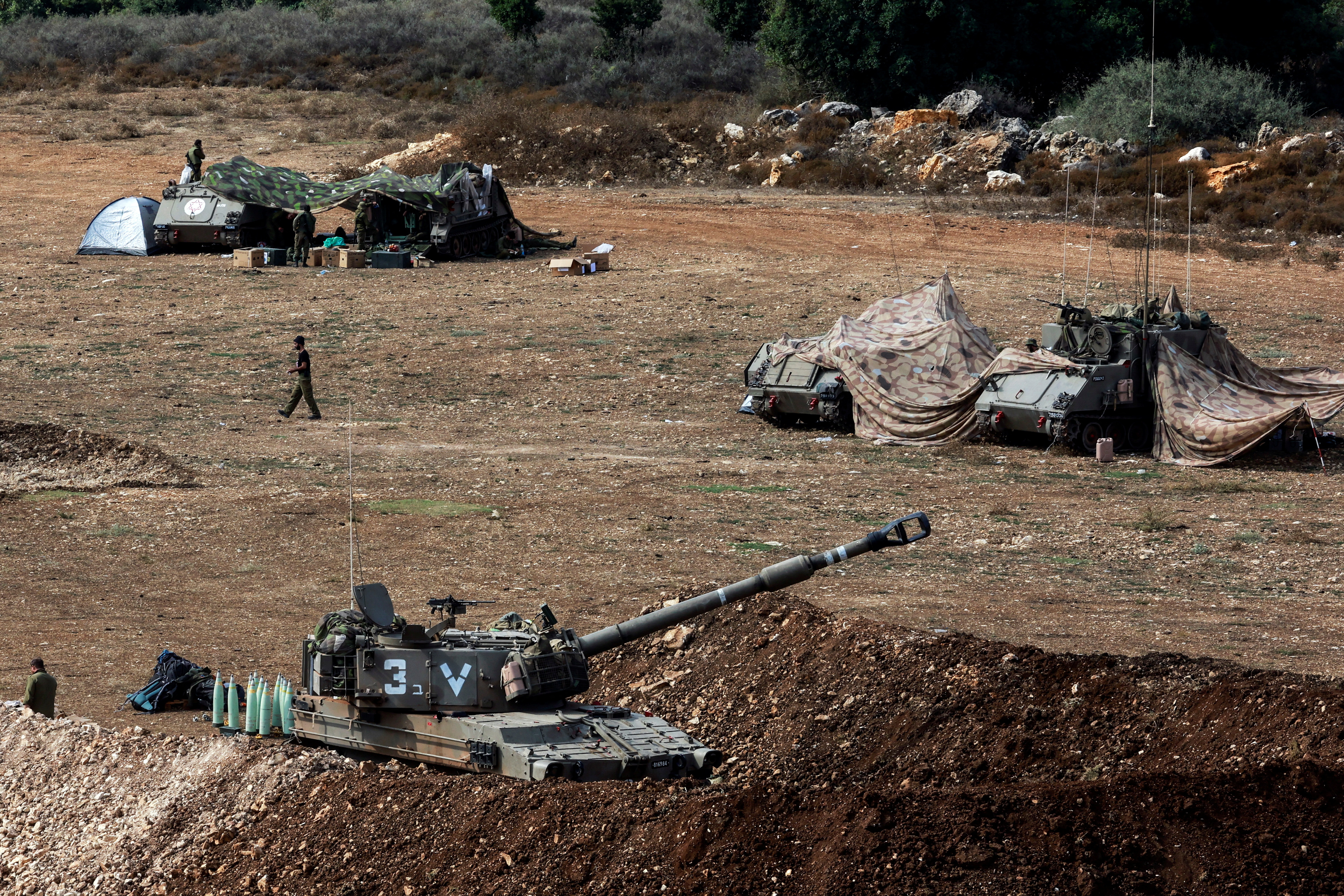
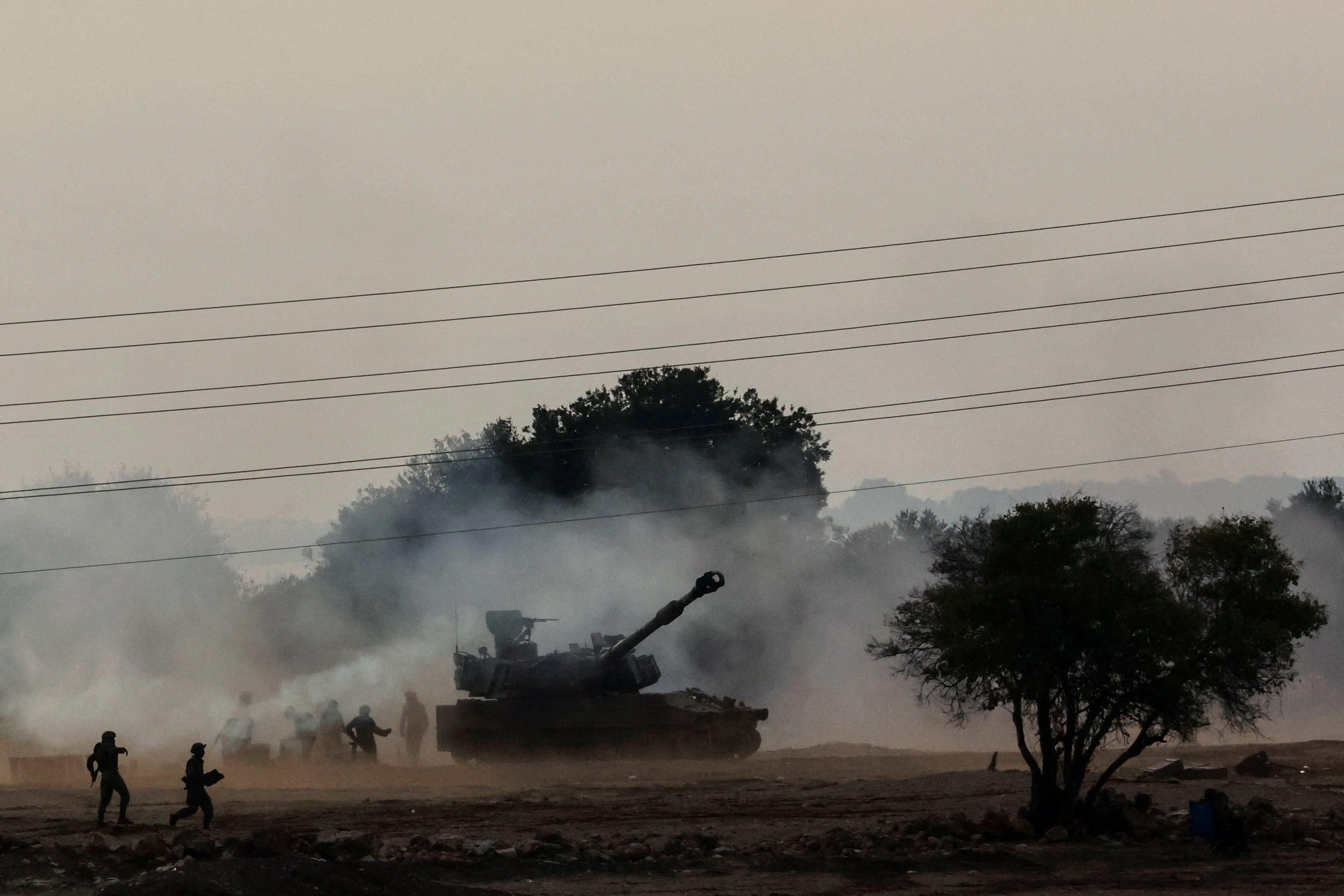
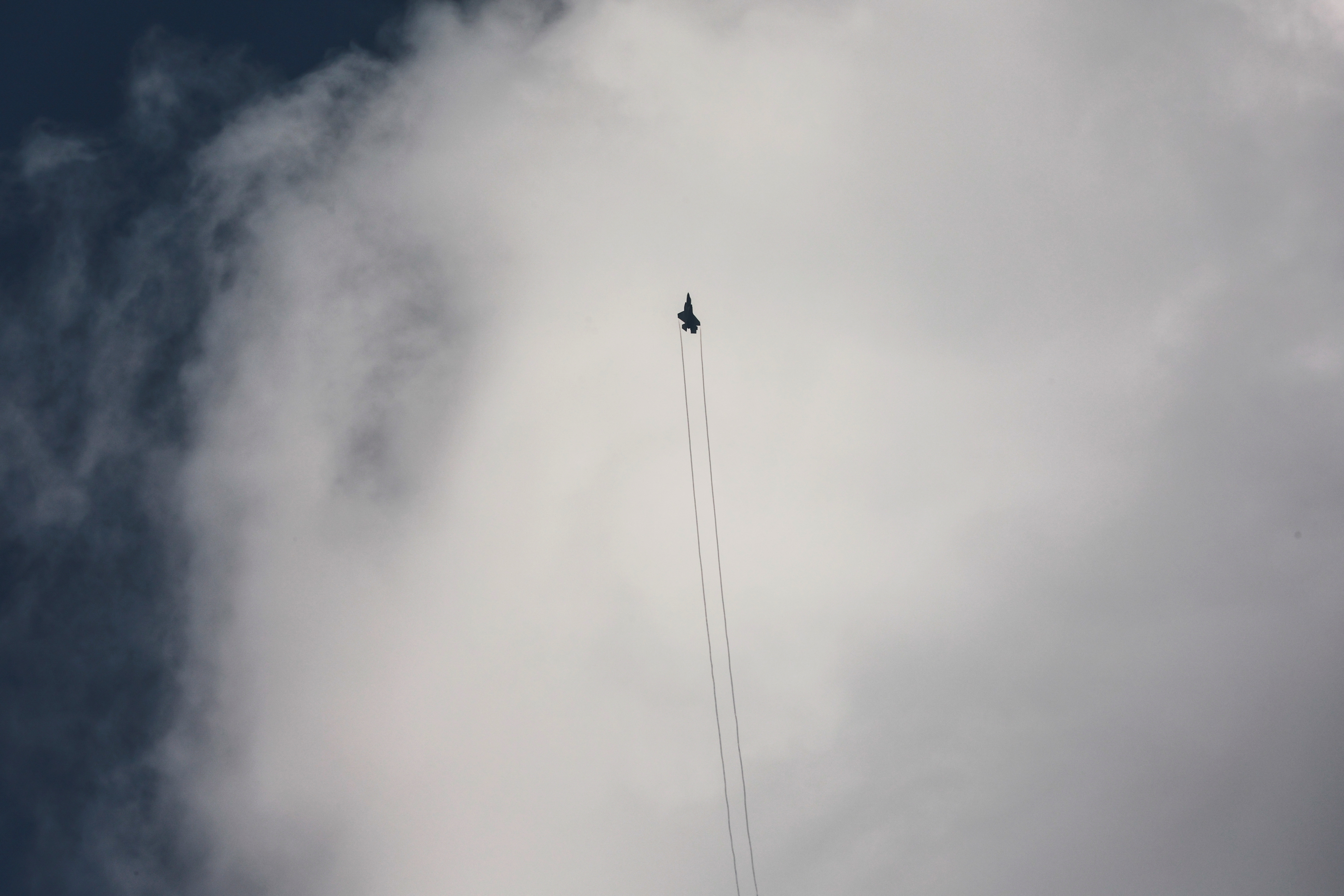
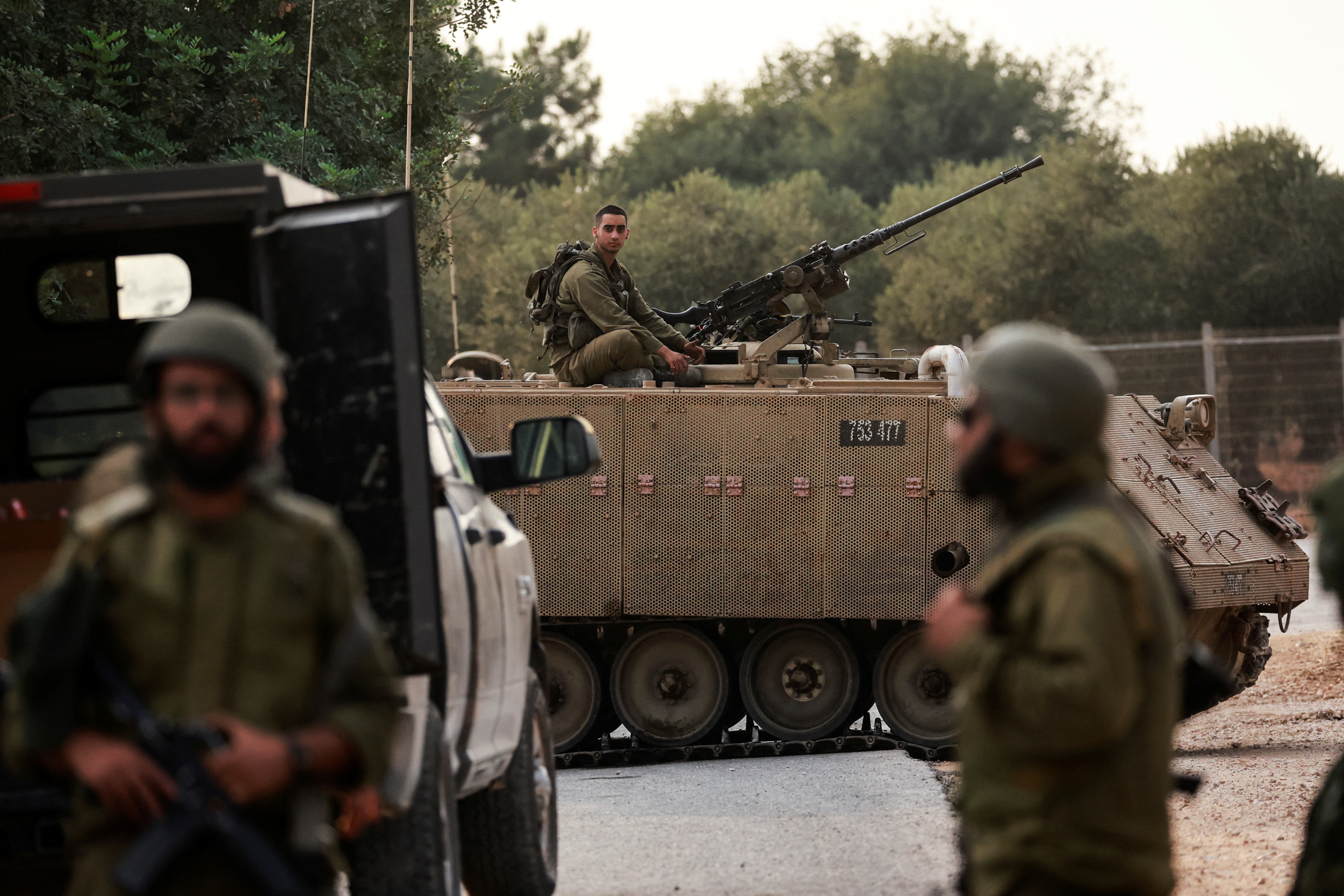
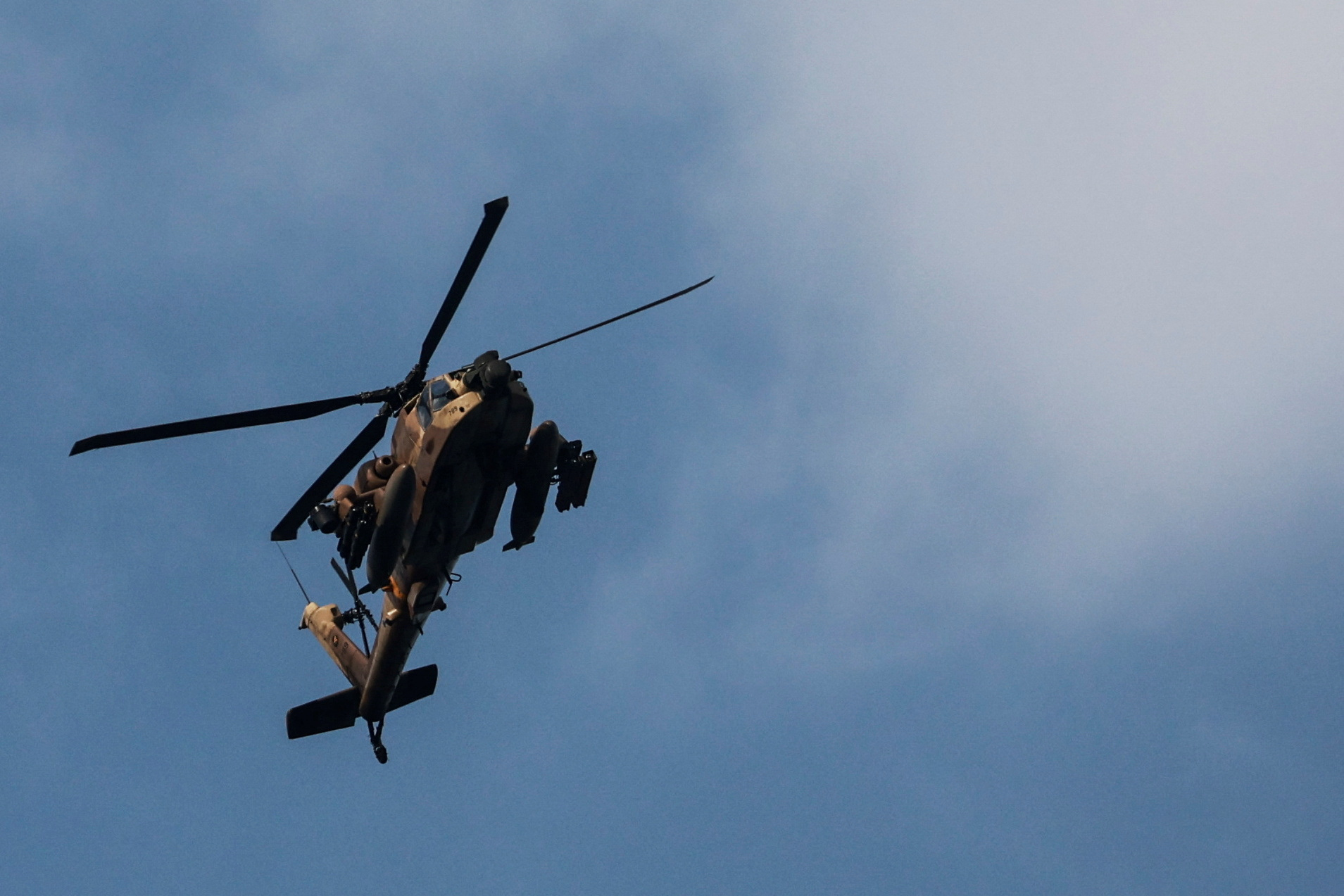
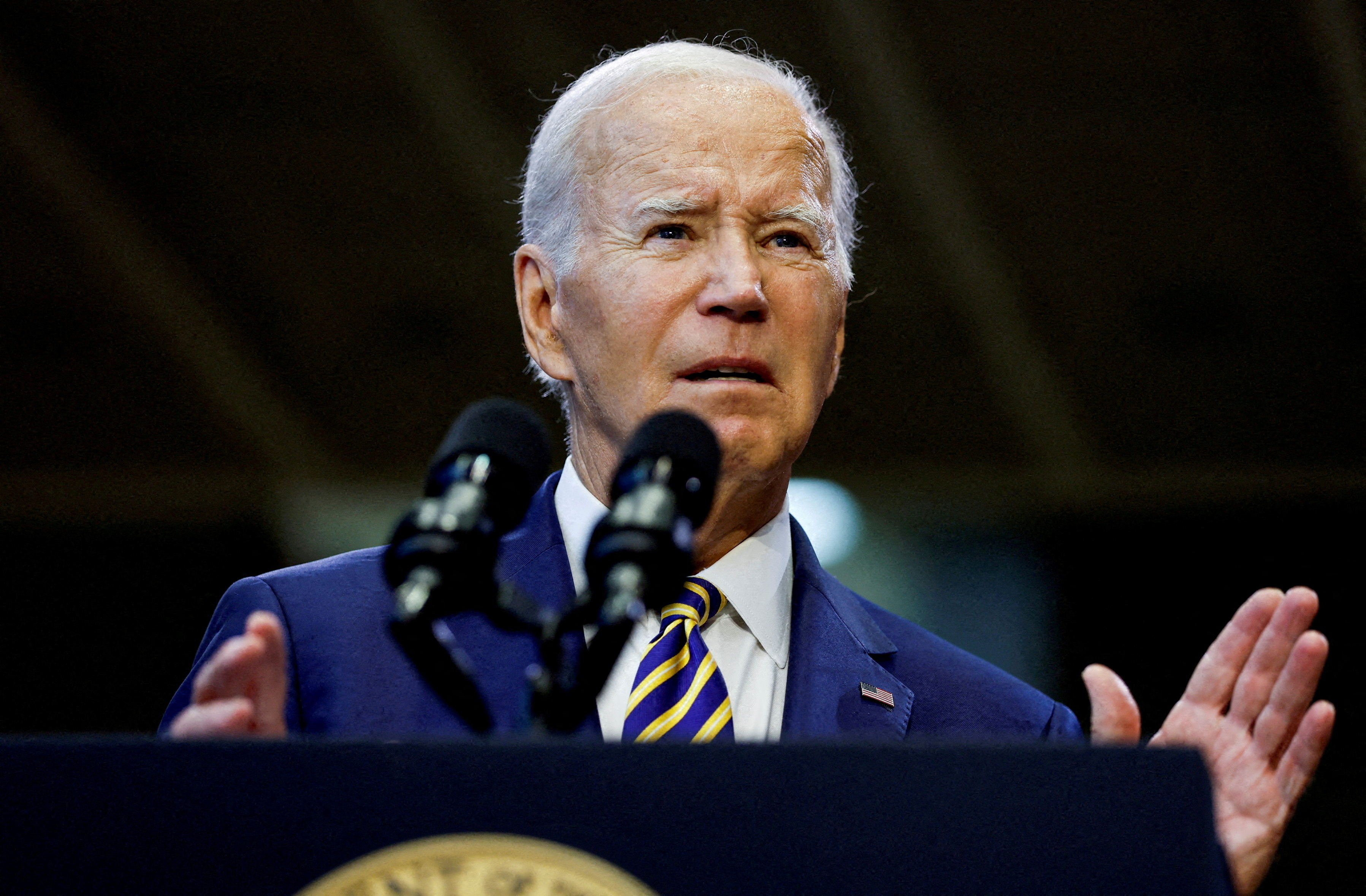
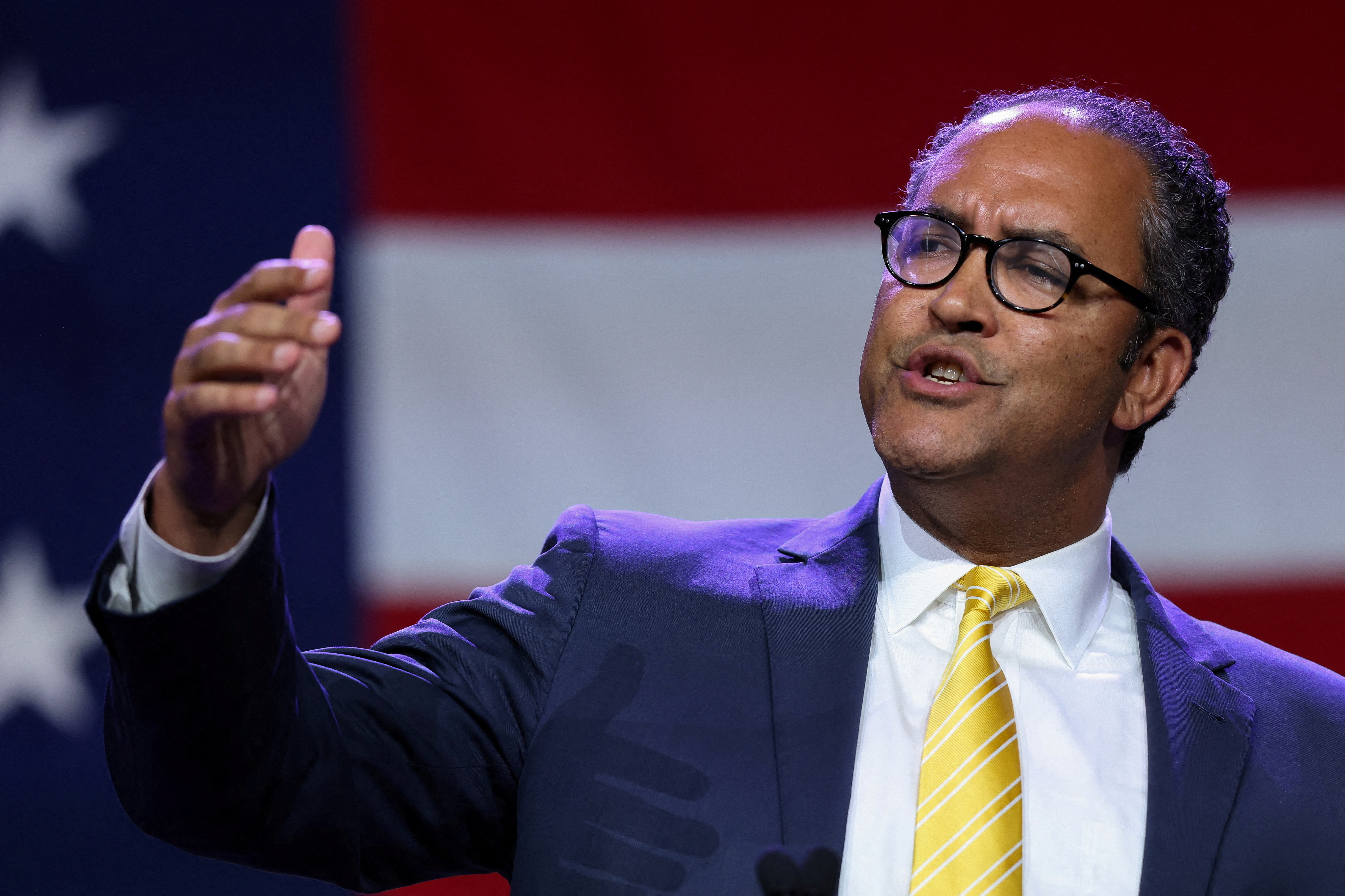


 Islamic Jihad fighter with AO-103-2 assault rifle.
Islamic Jihad fighter with AO-103-2 assault rifle.


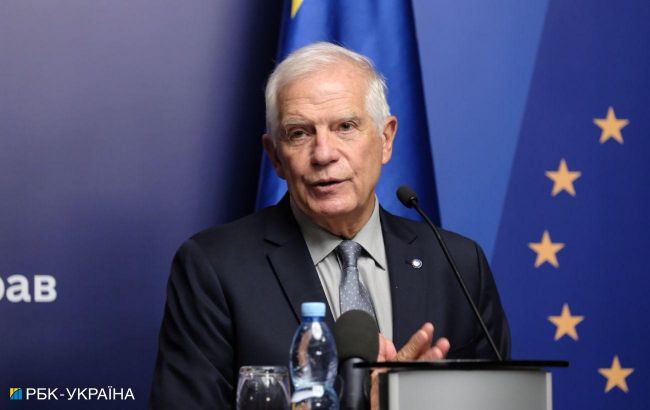

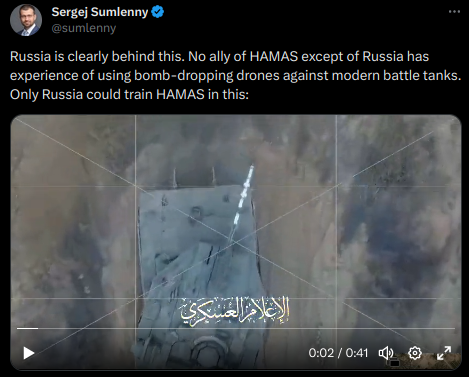
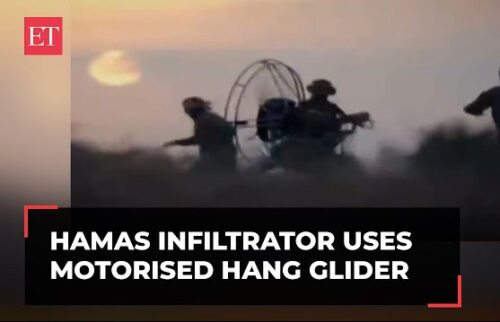 October 7, 2023. Source: ET
October 7, 2023. Source: ET